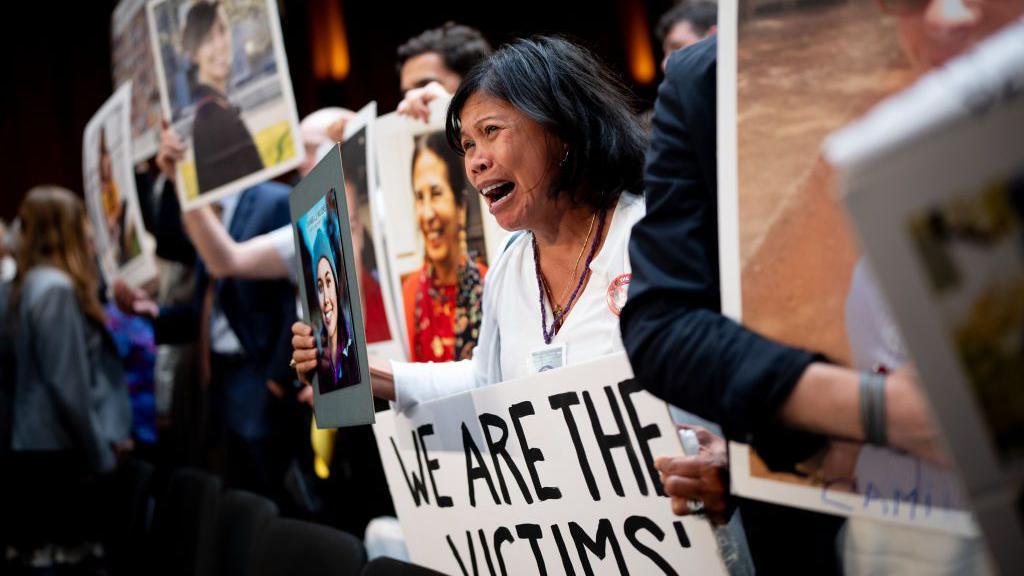NEW YORK — In a significant rebuke to Boeing and the U.S. Department of Justice, U.S. District Court Judge Reed O’Connor has rejected a plea agreement that would have resolved criminal charges against the aerospace giant related to its role in two fatal crashes involving the 737 Max aircraft. The crashes, which occurred in October 2018 and March 2019, claimed a combined 346 lives and were later attributed to design flaws in the plane’s automated flight control system.
The plea deal, reached in July, would have seen Boeing plead guilty to a single charge of conspiracy to defraud the United States. The company agreed to pay a $487 million fine, a figure that has been criticized as disproportionately small given the catastrophic consequences of the crashes and the $24.8 billion in damages sought by victims’ families. The deal also included a three-year period of oversight by an independent monitor to ensure compliance with safety improvements. However, Judge O’Connor cited multiple concerns, including the selection process for the monitor and the limited role of the court in overseeing Boeing’s compliance.
In his ruling, Judge O’Connor stated that the plea agreement marginalized the judiciary’s role, which he argued undermines public confidence in Boeing’s probation. He criticized the Justice Department’s decision to retain control over the selection of the independent monitor, excluding the court from this process. He also raised concerns about the department’s performance in enforcing compliance under an earlier settlement with Boeing, which failed to prevent further safety lapses, including a recent incident involving a 737 Max operated by Alaska Airlines.
The judge’s rejection represents a rare judicial intervention in plea agreements of this magnitude and reflects a growing dissatisfaction among victims’ families with the perceived leniency of the proposed resolution. Attorneys representing the families described the ruling as a victory for justice and accountability. Paul Cassell, a legal advocate for the victims, emphasized the need for a renegotiated agreement that adequately reflects the scale of Boeing’s criminal negligence and establishes robust safeguards to prevent future incidents.
“This decision marks a turning point for victims’ rights in the criminal justice system,” Cassell said in a statement. “It sends a clear message that backroom deals between federal prosecutors and corporate lawyers cannot bypass judicial scrutiny when lives have been lost.”
The crashes, involving Lion Air Flight 610 in Indonesia and Ethiopian Airlines Flight 302 in Ethiopia, were linked to a malfunction in the Maneuvering Characteristics Augmentation System (MCAS). Investigations revealed that Boeing engineers had not disclosed critical information about the system to the Federal Aviation Administration (FAA) during the certification process. This omission allowed the aircraft to enter service despite the design flaw, ultimately resulting in the two tragedies.
Boeing has acknowledged its role in the disasters, admitting that it misled regulators but maintaining that the misinformation did not directly cause the crashes. In court filings, the company expressed regret for the accidents and emphasized its commitment to addressing safety deficiencies. “Boeing profoundly regrets the accidents and the unspeakable losses suffered by the victims’ families,” company attorneys wrote, reiterating that the company has accepted responsibility for the design flaws that contributed to the accidents.
Critics of the plea deal, including victims’ families, argue that the proposed fine is insufficient to hold Boeing accountable for its actions, given the company’s substantial financial resources and the profits it earned from sales of the 737 Max. They have called for penalties that reflect the full extent of the harm caused, as well as greater transparency and stricter oversight of Boeing’s operations.
The plea agreement also proposed that Boeing spend $455 million over three years on compliance and safety programs, a 75% increase over its current annual budget for such initiatives. The government-appointed monitor was intended to oversee these efforts and ensure that Boeing adhered to its commitments. However, Judge O’Connor questioned whether this arrangement was adequate, given the company’s track record and the Justice Department’s prior failures to enforce compliance effectively.
Boeing has yet to comment on the court’s decision. The ruling opens the door for a renegotiation of the plea deal, potentially leading to more stringent terms and higher penalties. For the families of the crash victims, the decision represents a step toward accountability, although their ultimate goal remains to see justice served in a way that prevents future tragedies of this scale.
The legal battle continues to cast a shadow over Boeing’s reputation, which was once synonymous with quality and safety in commercial aviation. The 737 Max grounding, which lasted 20 months, and the subsequent revelations about the company’s practices have severely damaged public trust. Judge O’Connor’s decision underscores the need for systemic changes within Boeing and robust enforcement mechanisms to ensure the safety of air travel in the future.







